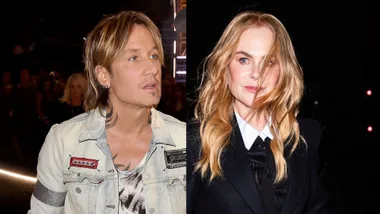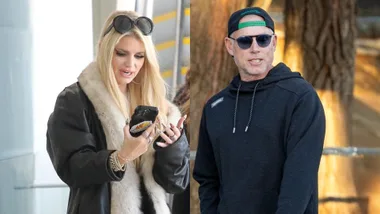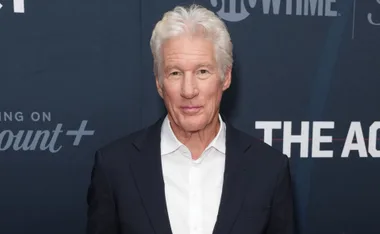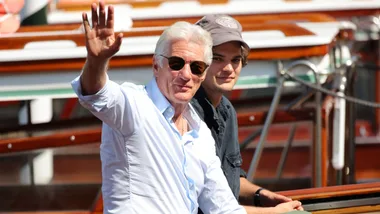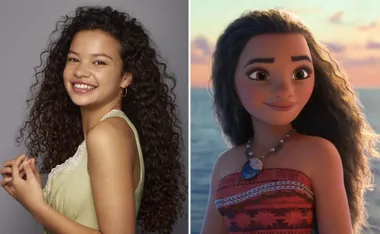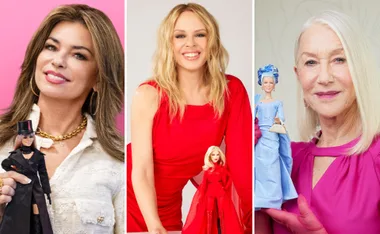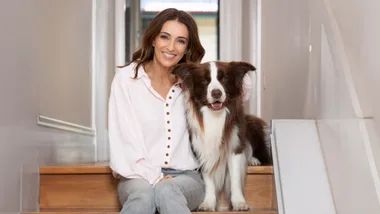It’s 1992, in the dry suburban outskirts of Mildura in country Victoria. It’s nearly midnight, but 12-year-old Adam Goodes can’t sleep. His bedroom walls reverberate with the sound of fighting between his stepfather, who has been out drinking again, and his mother. The knot of anxiety in his stomach grows.
As tensions escalate and their voices rise, Adam realises it’s up to him, as the eldest of three boys, to do something to make it stop. He pads over to the back window, pushes it open, climbs onto the sill and drops silently into the darkness below. Heart pounding, he runs quickly to the local phone box and dials 000.
Soon, police officers are knocking on the front door, the shouting stops and peace returns to the household, albeit temporarily. Young Adam and his brothers finally drift off to sleep, while their mother lies awake, caught between love of her husband and a gnawing sense that she should leave the relationship for the sake of herself and her boys.
Fast forward 22 years and Adam is Australian of the Year. The Sydney Swans champion, who has won two Brownlow Medals and kicked more than 400 goals in an illustrious AFL career, was honoured to be recognised as a powerful role model, anti-domestic violence ambassador and devoted community worker.
“I’m very humbled to get Australian of the Year,” told The Weekly.
“It doesn’t make me any more special than anyone else – I would be doing the same work, whether I got it or not – but it does allow me a platform to stand up for things.”
He had a mostly positive response, but to detractors who claim he was the wrong choice, he says, “Does it disappoint me that people think I don’t deserve it? No. Would they stop me in the street and say that? Probably not. I’m happy for people to come and debate things with me, though.”
While Adam’s come a long way, the quietly spoken 34-year-old has not forgotten where he came from. Indeed, Adam credits his mother, Lisa Sansbury, with making him the man he is today.
Strong, independent and principled, Lisa did leave her abusive relationship to raise Adam and his brothers, Jake and Brett, on her own. The family moved south to Horsham and established a loving home, heavily shaped by a female presence. Adam discovered AFL at school and became man of the house, taking responsibility for setting a good example to his brothers.
“Mum’s had the biggest influence on my life,” says Adam. “I’ve been very lucky to grow up with not only my mum, but my aunties, too. I’ve always had lots of care from different women. That’s why I have a lot of empathy to want to support and help people.”
You might not guess it by looking at his imposing 191cm frame, but even today, many of Adam’s friends are women, with whom he easily relates. As a White Ribbon ambassador, he is well qualified to offer support to those who are in unhappy or abusive relationships.
“Talking to girlfriends and finding out how [domestic violence] makes them feel made me angry,” he says. “It is way too common.”
Not that being in touch with women has made Adam soft – his mum also “instilled a lot of discipline”. This has enabled Adam to push himself from being a talented sportsman who struggled with homesickness into the highly focused world of elite football.
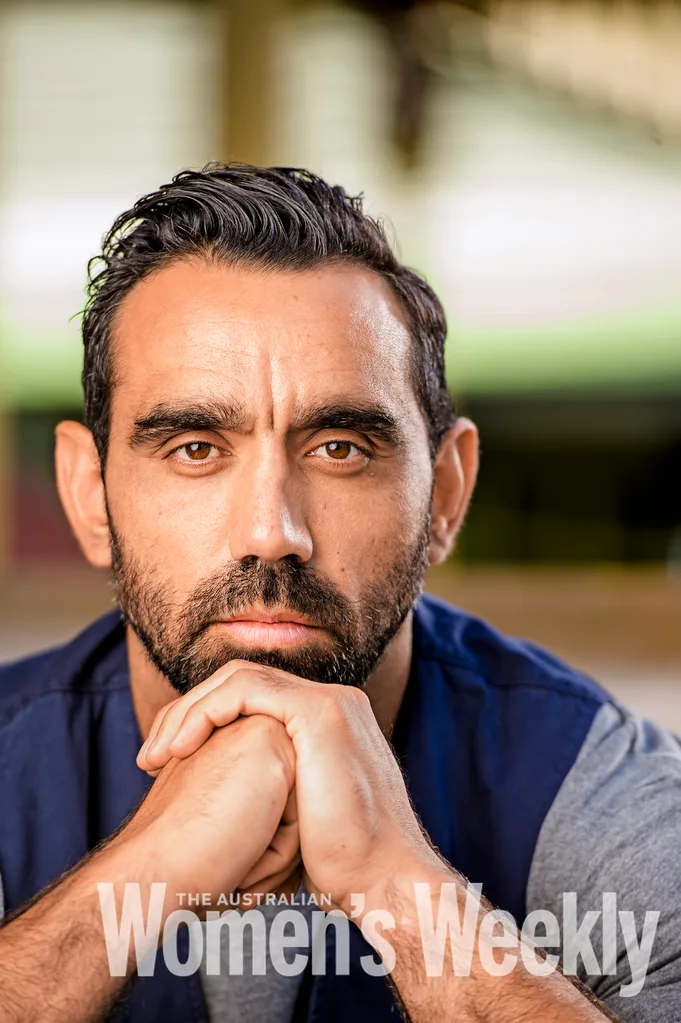
Ever since he was a little boy, Adam has faced racism and discrimination. At school, he was singled out as the only black kid. On the football field, he’s been the target of foul-mouthed abuse from opponents. Even from within his extended family, he has faced taunts for his mixed heritage as the son of an Aboriginal mother and father of European descent.
“I have been hurt by racism,” he says.
Yet, instead of spiralling into destructive anti-social behaviour and lashing out at the world, he’s harnessed these experiences to go in the opposite direction: standing up to racism, speaking out against violence, excelling in football, becoming a role model and giving back to the community.
Many of us remember the moment last year when, in front of more than 65,000 fans, Adam brought an AFL match to a standstill by pointing out a 13-year-old girl who had called him an ape.
Almost a year on, he doesn’t bear a grudge against the girl (at the time, he appealed for her to be cut some slack and given support), but wants to prevent such hurtful abuse blighting future generations by educating others, from friends and fellow footballers to the wider public.
“We need to start looking after each other better,” Adam says.
His mum, Lisa, 55, is understandably proud of Adam – and not only because of his recent achievements. Eight years ago, Adam was one of the first players
to put up his hand to join White Ribbon when the male-led organisation partnered up with the AFL. His mum knew it meant more than simply being part of
a worthy campaign to her eldest son – the motive was personal.
Looking back, Adam remembers the turbulent moments of his early adolescent years. “I was lucky in that I never saw my mum get hurt,” he says. “But I would be kept awake by their fighting and I’d climb out of my window at night to call police to get them to stop.”
Lisa also remembers her feeling of isolation, exacerbated by living far away from family and friends back in her native South Australia.
“[My former husband] used to go out drinking, then come home and start on me,” she says. “He would hit me and I would hit him back. Adam would climb out of the window to go and get help. But I woke up one day and thought, ‘This is it. I’m a strong woman, I don’t have to put up with this and my kids shouldn’t have
to see this. I don’t need this in my life.’”
Lisa, who separated from the boys’ father when Adam was four, had endured being flogged with a belt as a child. She was one of nine children taken from their biological parents as part of the Stolen Generations and then not told anything of their mother’s whereabouts until after her death.
“I broke the cycle for the sake of my children,” Lisa says.
“I wanted my boys to grow up and have a normal life. It was the best decision I ever made.”
Nevertheless, leaving the relationship was hard, a fact Adam probably appreciates even more now as an adult.
“It takes a lot of courage,” he says. “Mum was in love with my stepdad. They were married. It wasn’t always [abusive]. It was a massive decision for her to leave and take us away on her own.”
Yet it also sent a powerful message to the Goodes boys on their journey to manhood.
“I always told my boys, ‘You don’t have any right to ever raise your hand to a woman. If you do, you will be going to the police,’” says Lisa.
“I taught them to treat women with respect.”
Seeing what Lisa went through clearly had a profound impact on her sons.
“I think that’s why my boys are so kind and loving,” says Lisa. “They are all young men now and they are very protective of me.”
They’ve also each found success, Jake, 32, as a park ranger in Victoria, while Brett, 30, has followed in his big brother’s footsteps by becoming an AFL player for the Western Bulldogs.
Although research shows children who witness domestic violence are more likely to grow up to become perpetrators or victims themselves, the brothers’ exposure was short-lived and had the opposite effect.
“It has affected how I’ve been in relationships because I’ve never wanted relationships to look or feel like that,” says Adam. “You do want to try and make relationships work, but not at any cost.”
These days, Adam makes it his business to intervene when he sees signs of or the potential for abuse. Yet confronting men from all walks of life with anger issues isn’t easy.
“It’s a tough issue to talk about,” he admits. “When I have those discussions, it’s one on one. You ask, ‘What sorts of things do you do with that anger?’ You talk about having a place to go, how to extract yourself from the situation. It’s about helping men before they make a bad decision. It’s not to embarrass them – it’s because you care.”
Having been team captain has given Adam some skills that help him navigate the issue.
“I am forever giving feedback in a football team,” he says. “It’s something that comes easily now, but it hasn’t always been that way.”
Although Adam is probably approaching the final stretch of his playing years, he isn’t about to fade out anytime soon. Eloquent and assertive, he is already speaking up on issues close to his heart in his new and challenging role as Australian of the Year, such as pushing for the constitutional recognition of indigenous people. Perhaps he has a future calling in politics.
To his emotional mum, Lisa, it’s only the beginning. “I think there’s no stopping that lad,” she says. “There’s more to come.”
Despite the various hardships and challenges, Adam looks back and reckons he has been pretty lucky.
“I had a caring parent who made sacrifices for me,” he says.
“I went to school with breakfast in my tummy and had lunch every day. We made the best of what we had.
“I’ve had a very blessed life.”
This article originally appeared in an issue of The Australian Women’s Weekly


